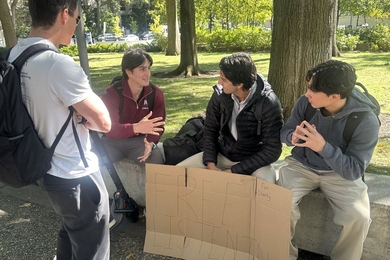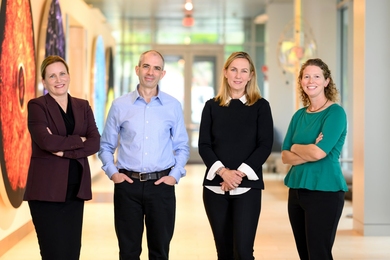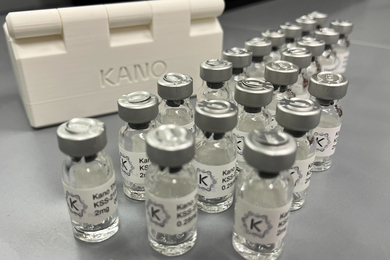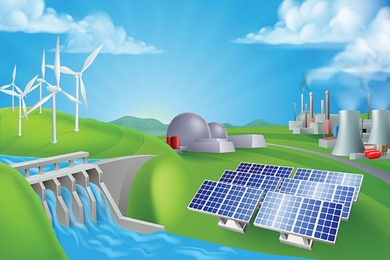Recognizing the critical need for scalable energy storage solutions to develop regional energy systems in China, ENN Group of China has joined the MIT Energy Initiative (MITEI) to advance research in this area. With a three-year membership agreement, the ENN Group will participate in MITEI’s Center for Energy Storage Research.
The storage center is one of eight Low-Carbon Energy Centers established as part of the Institute’s Plan for Action on Climate Change, which calls for engagement with industry to solve pressing challenges of decarbonizing the energy sector with advanced technologies, including energy storage, solar, and bioscience, to name a few. The new centers build on MITEI’s existing work with industry members, government, and foundations. These collaborations over the past 10 years have led to groundbreaking discoveries and innovations, such as a first-of-its-kind liquid metal battery for large-scale energy storage.
Operating in more than 150 cities in China and globally, ENN is committed to developing a “regional intelligent energy system” in China: combining electricity, natural gas, and heating and cooling needs of industrial and residential customers to achieve greater system-wide efficiency and meet energy demand. To that end, ENN Energy Research Institute now runs several research centers focused on renewable energy technologies, integrated “ubiquitous” energy and information networks, coal-based energy technologies such as gasification and carbon recycling, and environmental protection technologies. ENN sees energy storage as an integral part of a regional intelligent energy solution.
“Membership within MITEI and its Center for Energy Storage Research offers an ideal platform for enhanced academic collaboration and open communication with like-minded institutions,” said Zhenqi Zhu, president of ENN Energy Research Institute. “Active participation in the MITEI community will expand our technological resource horizons; we look forward to working with other ecologically focused global energy companies to develop 21st century energy innovations.”
“We are delighted to welcome ENN Group as a new MITEI member,” said Robert C. Armstrong, director of MITEI. “ENN's depth of experience in the Chinese energy market and dedication to advancing technologies will be a great asset to our energy storage center as MIT researchers work to develop and bring new energy storage technologies to the market and as companies collaborate on solutions.”
The energy storage center will draw on cross-disciplinary MIT research in engineering, science, and policy as well as real-world input from stakeholders in industry, government, and nongovernmental organizations — including ENN — to hasten the development of new energy storage technologies with the technical performance and cost characteristics needed to provide power sustainably at any place, at any scale, and at any time. The center is led by co-directors Jeffrey Grossman, the Morton and Claire Goulder and Family Professor in Environmental Systems and a professor of materials science and engineering at MIT, and Yang Shao-Horn, the W.M. Keck Professor of Energy and a professor of mechanical engineering and of materials science and engineering at MIT.
The research portfolio at the center will mirror the wide variety of energy storage needs that must be addressed to enable greater deployment of renewables in the power sector and more extensive electrification of mobility. Examples include developing new lithium-ion and sodium-ion battery materials with increased storage capacity and fuels that can store solar energy as usable, distributable, on-demand chemical energy.
In addition, researchers are investigating ways to control, synthesize, and characterize materials at the atomic and nanometer scales — work that will facilitate the discovery and design of new materials for storage applications.
“ENN’s membership brings additional expertise and diversity to the global consortia of MITEI’s Low-Carbon Energy Centers,” said Wendy Duan, manager of the Asia Pacific Energy Partnership Program at MITEI. “Their enthusiasm about the collaborative research opportunities offered by the centers is indicative of the high level of interest we’ve been seeing as we talk with other companies in China and throughout Asia. We look forward to ENN’s participation and thank them for their support of this vital research.”









